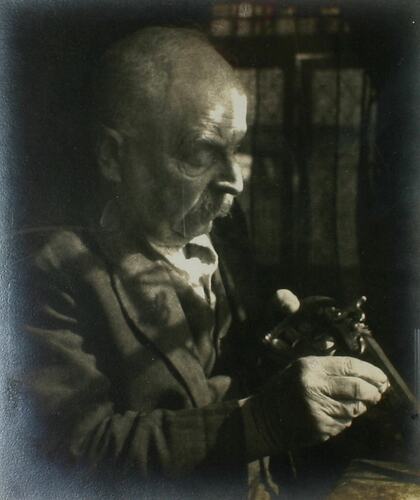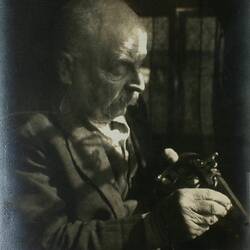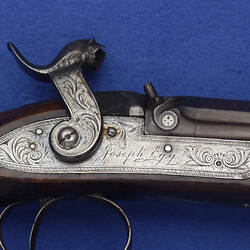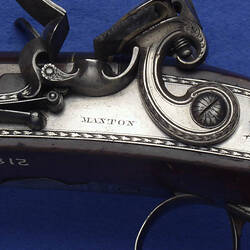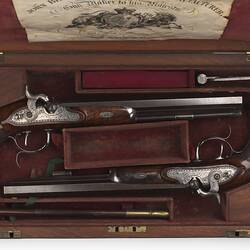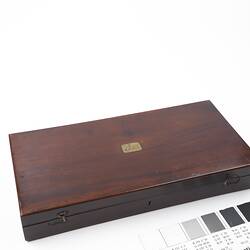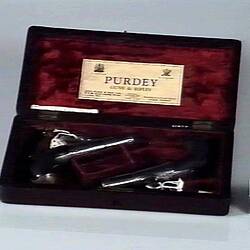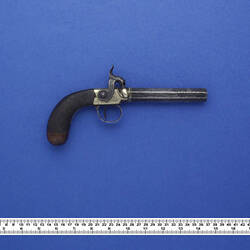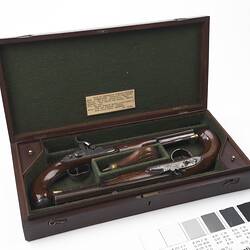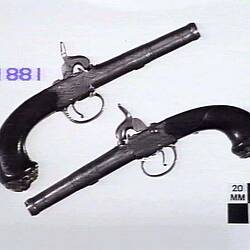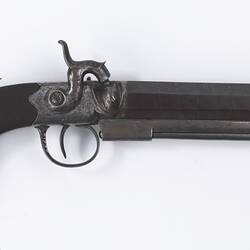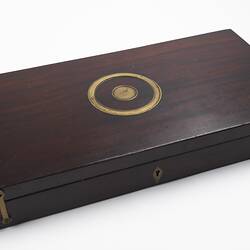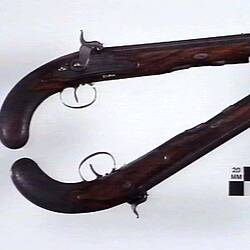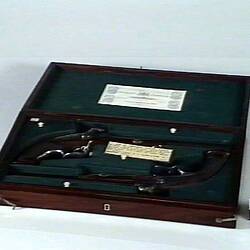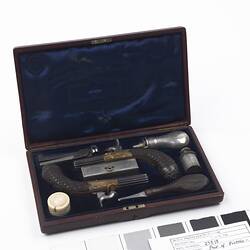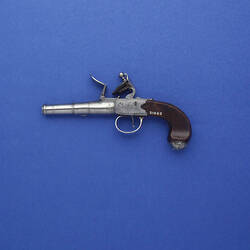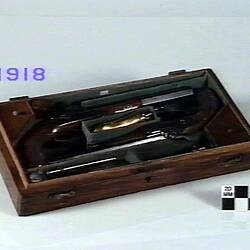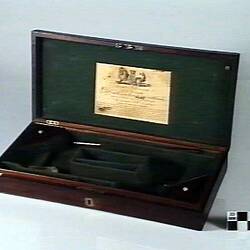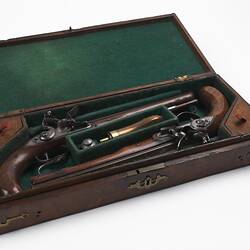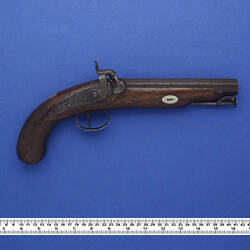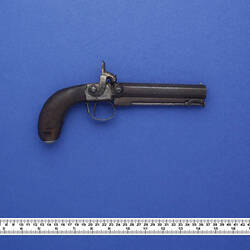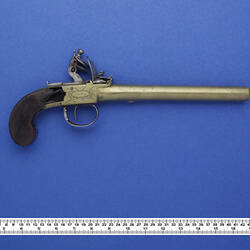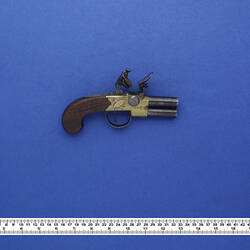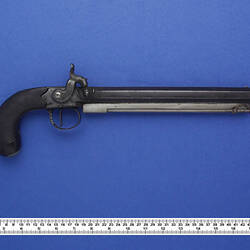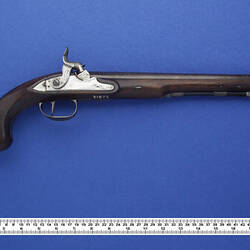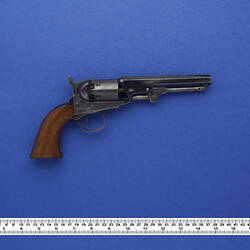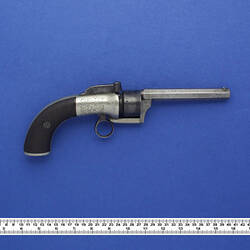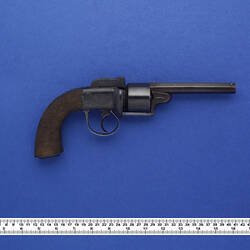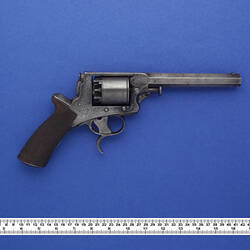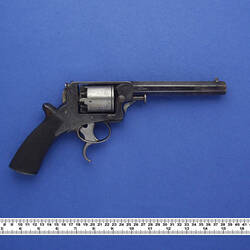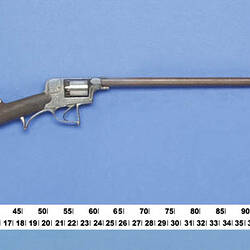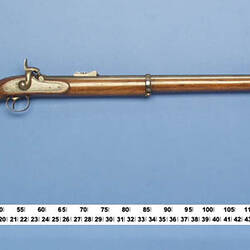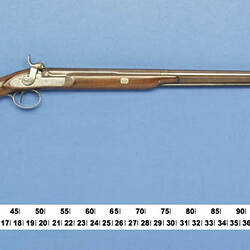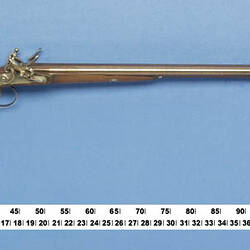William Edwin James Cole was born in Fitzroy, Melbourne, on the 29 August 1864, the first child of John William and Mary Harriet Cole nee Matthews.
John William Cole had gone into partnership with his brother, James, in the late 1850s as oil and paint merchants, located at 12 Napier Street, Collingwood, under the trading name of Cole Brothers. They first appear trading under this name in 1859 in the Sands & Kenny Directory, though a business appears two years earlier under the same name at 73 Flinders Lane East. No connection has been found between the two business and the two proprietors, John Richards and Thomas Cole, do not appear to be related.
Cole Brothers continued supplying paints and related goods, adding wall papering to their listed credentials in the early 1860s. By 1875 the two brothers had moved the business to the south side of Gertrude Street and opened at no.80 (later renumbered 114). The business remained at this address until it closed in 1978, making it one of the longest trading paint suppliers in Melbourne.
William entered his father and uncle's business and worked there, continuing the business after the death of his father (1 May 1902) and James (12 September 1912) until his own retirement at the age of 52 in 1916.
William's interests were broad and varied. He was musically gifted, and played the piccolo in the then prominent metropolitan orchestra Smart & Aumonts, with whom he played at various balls and other large events at the Fitzroy and Collingwood Town Halls, the annual military ball - 'that went till 5 a.m.' - the Caulfield races, Freeman's Dances, and Melbourne Cricket Ground Open Air Concerts, Test and Interstate cricket matches. He also played with Tom Riley's Band for some 30 years as well as The Rose of Denmark Lifeboat Crew Fife and Drum Band which made its first public appears at the opening of the Melbourne Exhibition in 1880. One of his prized possessions was an enlarged photo of the latter band.
As a piccolo player his talent was widely recognised and his solos were always a feature with both bands. He was popularly known in the metropolis, and to every member of the Musicians' Union, as 'Bill Cole, the Piccolo Player' and when he died his obituary would continue to note his talents, describing him as 'the outstanding Melbourne piccolo player of all time'.
He was a dedicated Mason, holding a high position in the Victorian Masons, and belonged to four Masonic Lodges at the time of his death. In sports, it was the outdoor pursuits of shooting and angling that captured his attention and for years he was known for having the fastest sailing boat in Frankston, the 'Waiwera' - winner of the St. Kilda Dinghy championship 'on more than one occasion'. Local fisherman called it 'The Flyer'.
In 1889, aged 25 William married Emma (Emilie) Holmes and together they had three children: Doris Eleanor (1893-1976), Vera Emilie (1896-1948), and Cleveland John Melbourne (1897-1936), who died tragically in a cross-country skiing trip near Omeo and was honoured by the building of the Cleveland Cole Alpine Hut some years later.
Things with some history seemed to have captivated William, probably from a young age. He owned a lustre-ware teapot that had been in the family on his mother's side for more than 300 years, and boasted a collection of 'pictures of every type of railway locomotive used in Victoria since the foundation of the rail system'. As a keen shooter, he also started developing an extensive collection of antique firearms, and donated the majority of his collection to the museum in 1943.
But for the residents around Frankston where William spent the last years of his life, he was best remembered for his other traits. 'Old King Cole', as he was known by locals young and old, opened his uniquely styled garden, 'Mooyoopgoonong Wild Life Garden', in the years after his retirement. The garden was conceived while cutting wood one day, when Cole was struck by how a piece of nearby ti-tree looked like an emu's head. He continued to gather and collect unusual shaped pieces of wood, painting them into the objects they seemed to imitate, and opened his garden to the public, much to the delight of the local children.
References:
The Argus (Melbourne), 5 January 1929
The Standard (Frankston), 31 August 1950
More Information
-
Keywords
-
Localities
Collingwood, Victoria, Australia, Frankston, Victoria, Australia, Melbourne, Victoria, Australia
-
Authors
-
Article types
